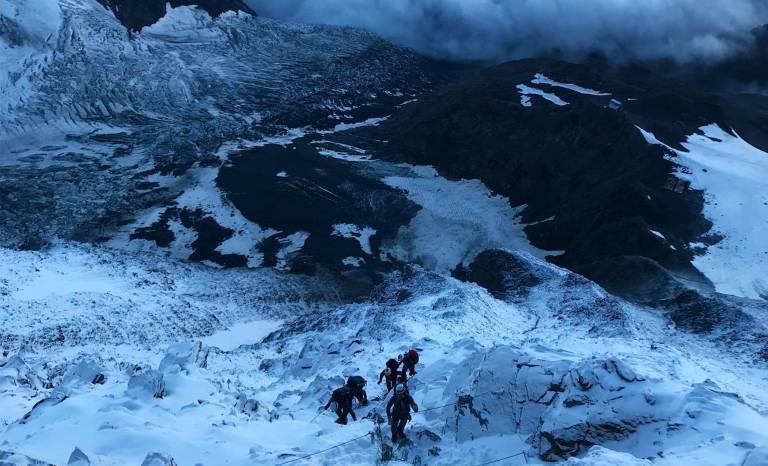 Research
Research

Subject
Beyond Relief: Creating a New Datum for Inhabiting the Contemporary Mountain
First and second supervisors
Abstract
Trans-scalar surveying techniques have consistently been used to enable physical and conceptual interaction with upland terrain. During The Golden Age of mountaineering, intense surveying of the Alps and Himalayas was carried out to aid the climbing efforts of vying European nations seeking to assert their dominance and appropriation of terra incognita. The desire for ownership relied on supposedly accurate cartography in order to delineate a landscape both physically and temporally greater than the aspiring inhabitant. In this environment the occupant's gaze is mediated by a scale derived from representing the existing condition and a presumption of representational accuracy.
Relief mapping, a fundamental branch of cartography perfected during The Golden Age through the hachuring techniques of Imhof and Harvey and appearing in the three-dimensional landscape models housed in the Bern Alpine Museum, was a fundamental tool of translation in the conquest of the Alps and Himalayas by European surveyors and climbers. It aims to combine the empirical data required for accurate representation and successful exploration, while as Capello argues, ironically aspiring to historical qualitative experiences through each cartographer’s illustrative expression. This combination of measured accuracy and artistic expression places the truth of the original survey in doubt.
If the mountain environment has the ability to foster representational distortions, inaccuracy within quantification or an apparent desire for impressionistic depiction rather than dimensional fact, it suggests the surveying techniques which created a datum for our initial inhabitation require reassessment. Instead of assuming the validity and sense of quantifiable control created by error-riddled techniques of traditional surveying, the research investigates whether an acceptance of error, tolerance and the warping of scale, in an environment where the surveyor is part of the land being surveyed, suggests methods for equally representing dimensional truth alongside the high-altitude experience. From this position, the appreciation and usage of surveyed information informs new ways to inhabit, explore and perceive the contemporary mountain environment.
Biography
Laurence Blackwell-Thale is an architect, researcher and tutor. He completed his undergraduate and masters at The Bartlett, his part 3 at Westminster and has a particular interest in construction detailing and fabrication procedures. His research and teaching combine playful narrative approaches with technical rigour to foster bespoke architectural assemblies underpinned by alternative methods of inhabitation and detailed material understanding. He tutors across several programmes at The Bartlett, positioning his cross-disciplinary practice at the intersection of architecture and landscape.
Image: Laurence Blackwell-Thale
 Close
Close

